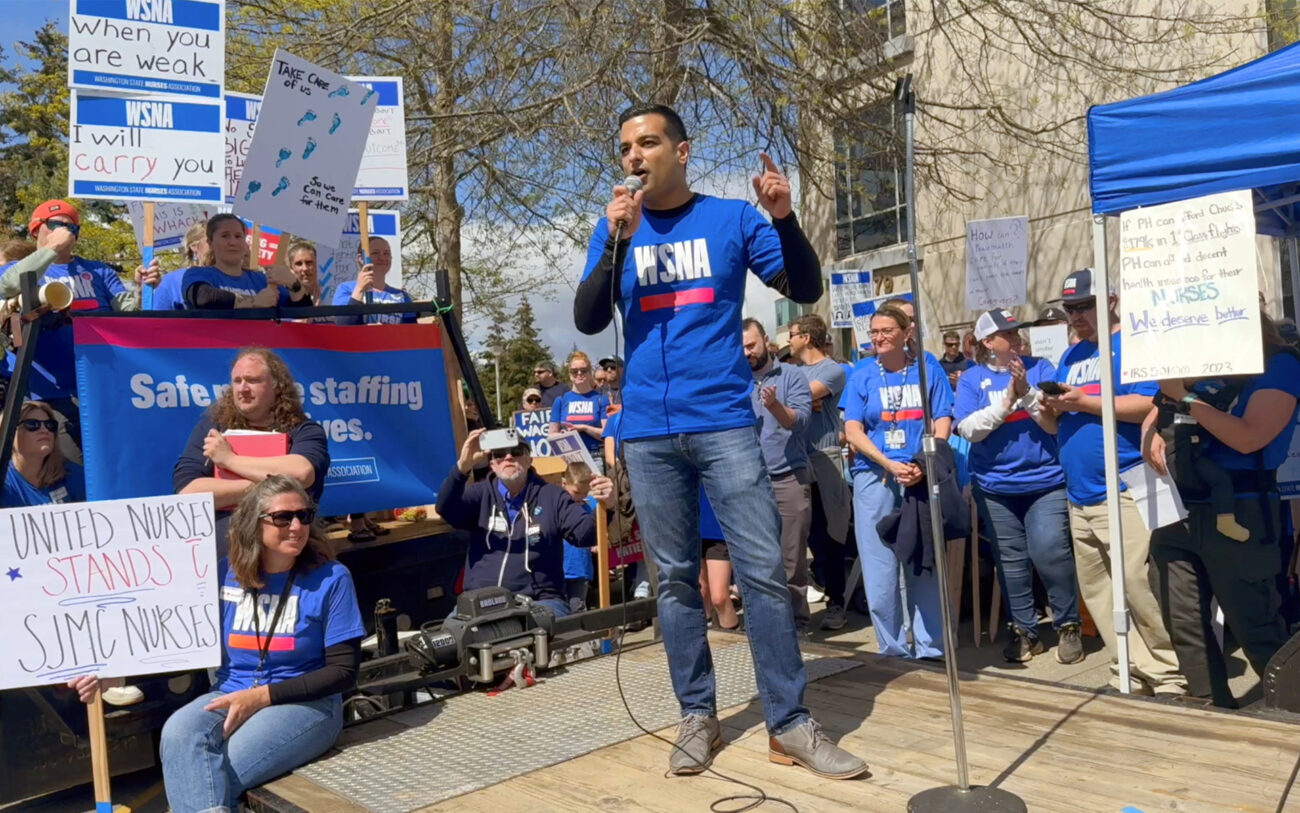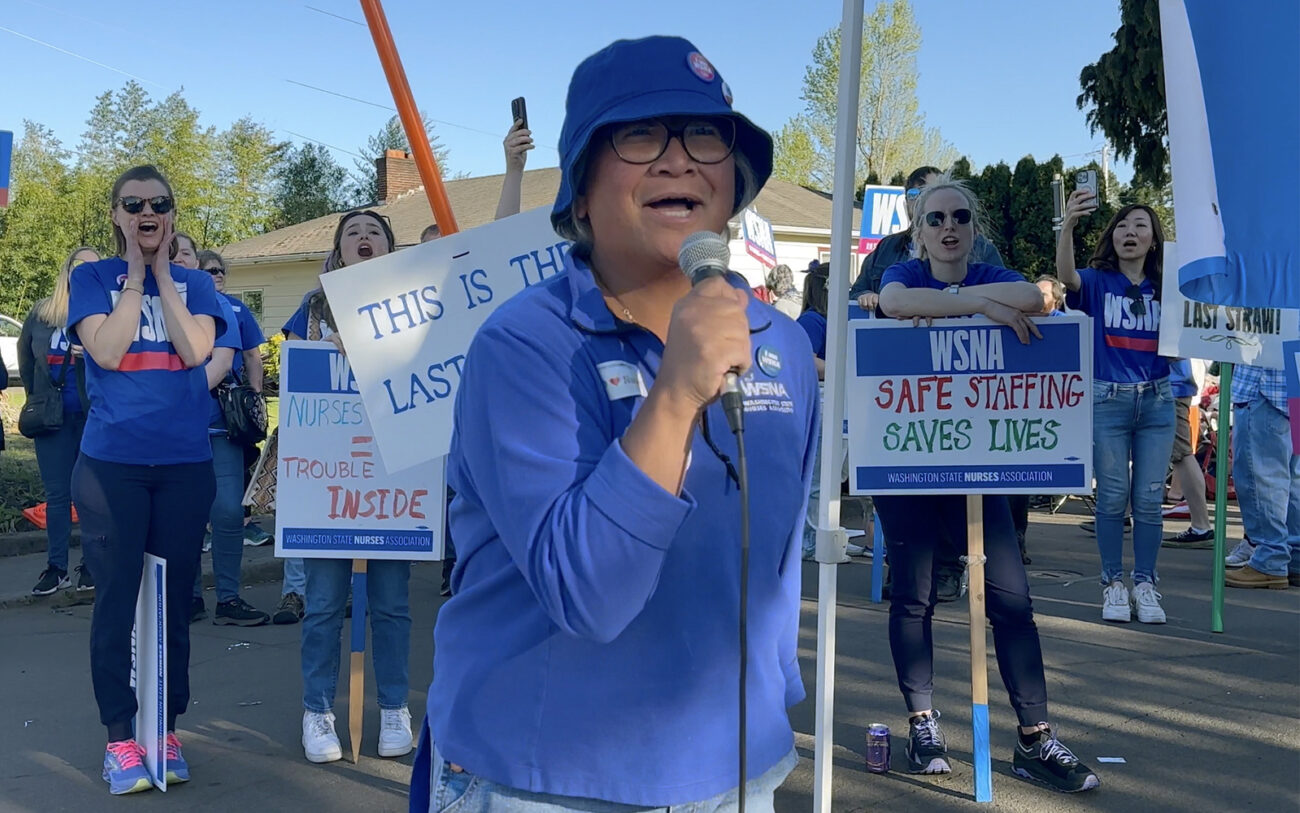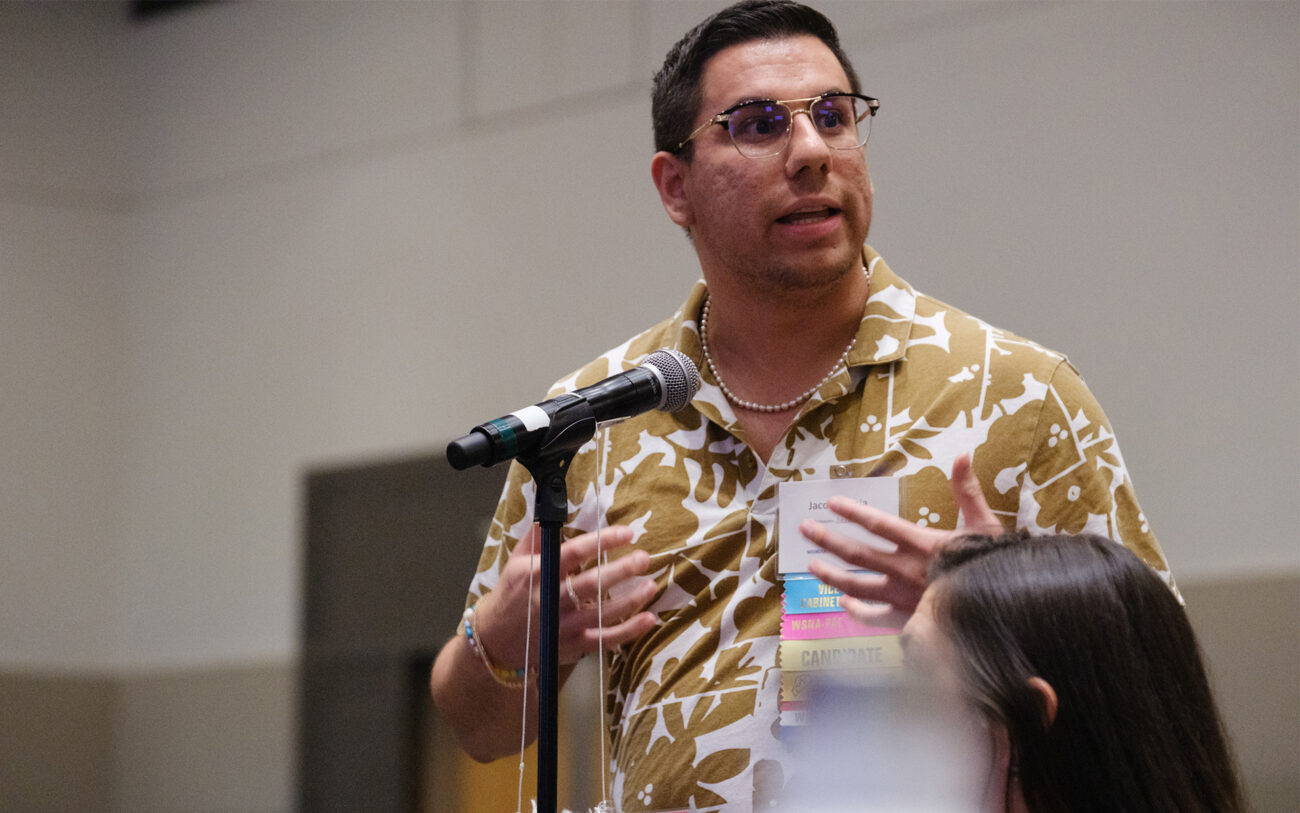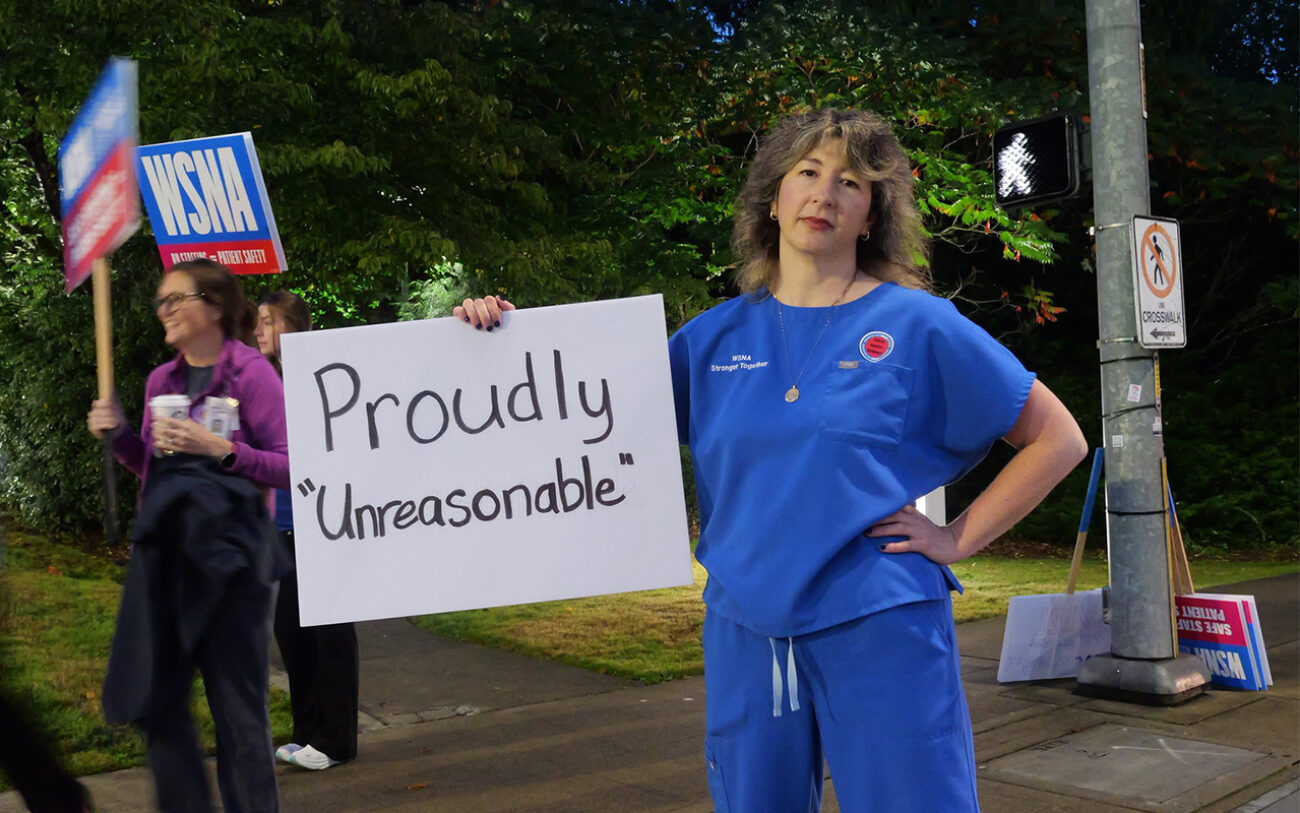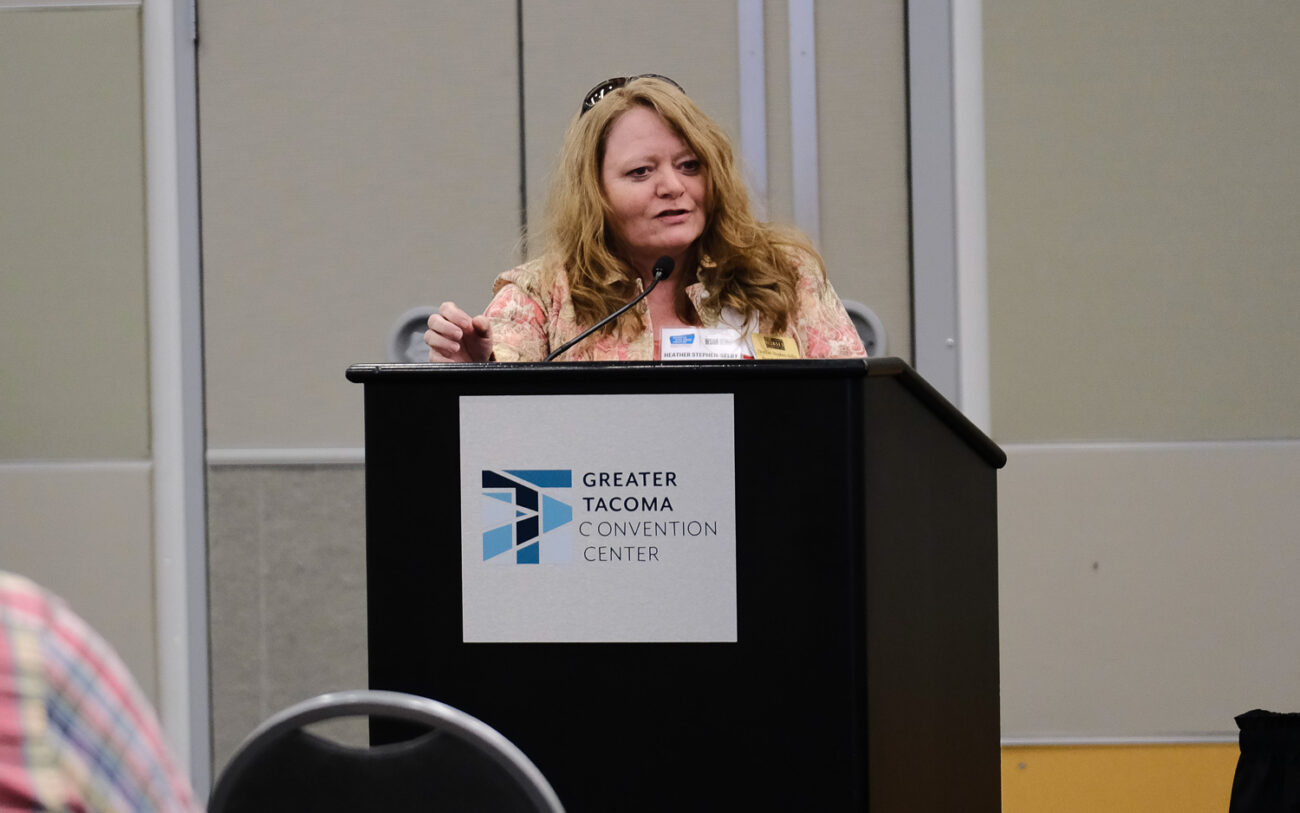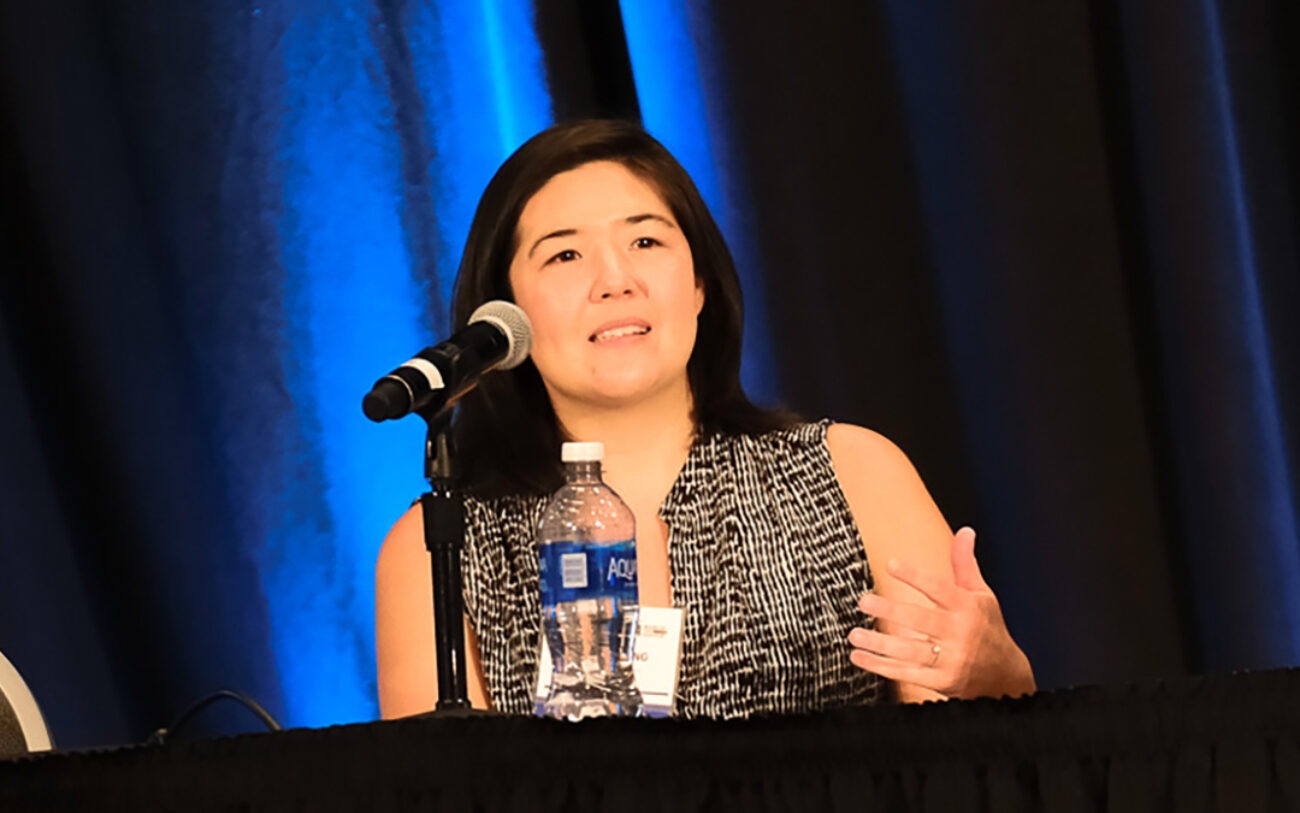Meet the WSNA Board of Directors
This story appears in the November 2025 edition of The Washington Nurse.
The WSNA Board of Directors is made up of 11 representatives elected by WSNA members from all over the state. Board members are elected to serve two-year terms. The current board took office on July 1, 2025.
The board oversees the work of WSNA between meetings of the General Assembly. It includes three officers — the president, vice-president, and secretary treasurer. The chairs of the Labor Executive Council, the Legislative and Health Policy Council, and the Professional Nursing and Health Care Council serve as members of the board. The board also includes five director-at-large positions, two of which must be filled by staff nurses.
We asked your board two questions: What are the top issues facing nursing today? What are your top priorities for the board this term?
Their answers reflect a wide range of issues and priorities, all aimed at making the nursing profession stronger and helping our members thrive.
Here are their answers:
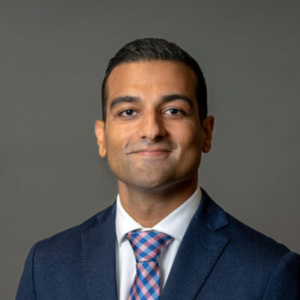
What are the top issues facing nursing today?
Staffing, retention, and workplace safety continue to be issues that affect our profession today. Many of these issues are compounded by extremely challenging state and national policy environments that are placing an added burden on our healthcare system. Nurses are caring for patients with more complex needs, higher acuity, and fewer resources, underscoring the importance of safe staffing and retention to adequately serve our populations.
The current social and political instability is directly affecting the social determinants of health, which impacts the outcomes and well-being of our patients.
While these foundational issues exist, we have also entered a new era of rapidly growing artificial intelligence (AI). AI is increasingly being used or considered in healthcare settings, and nurses must be at the table when these innovations are developed, considered, and implemented. Technology can assist us, but it cannot replace the heart, judgment, and expertise of the nurse.
What are your top priorities for the board this term?
We are at one of the most pivotal and critical moments in our nation's history, and my primary goal is to ensure that we stand up for our practice and our patients in every arena. A significant priority for me is to improve nursing's presence and participation at every healthcare decision-making table in Washington state, whether that be through the legislature, the media, or multidisciplinary coalitions.
Since this will be my final term as president of WSNA, I am focused on ensuring that we continue to support and recruit the future leaders of this organization.
With the above priorities ongoing, the board is presented with the more immediate responsibility of selecting a new executive director to help lead this organization and build on the fantastic accomplishments of our current Executive Director David Keepnews, who will be retiring in August of 2026. We are fortunate to have David until next year, as there is so much work to do in the coming year. The board is committed to conducting a thorough search process and facilitating a smooth transition of leadership.
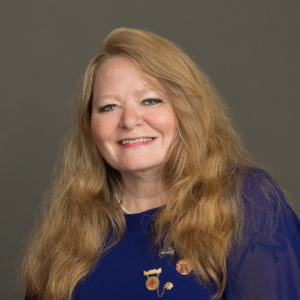
What are the top issues facing nursing today?
There are a multitude of high priorities that are before us as nurses and as an organization. The top three for us as nurses are the assault on the Affordable Care Act, safe staffing, and corporatization of healthcare. All three of the priorities are intertwined with the overarching need for accessible, safe and quality care for all persons in the United States.
By taking full advantage of provisions in the Affordable Care Act, Washington state drove down the uninsurance rate by more than half. WSNA has tirelessly fought to maintain this coverage through legislative efforts and public advocacy. As vice president of WSNA, I am committed to continuing this.
Another key priority is safe staffing. Not only does it improve patient safety and outcomes, but it also reduces medical errors and hospital readmissions. In addition to advocating for stronger laws and policies, we must hold our employers accountable for providing the best care for all people in Washington state.
Finally, the corporatization of healthcare continues to threaten access, safety, and quality of care in our communities. The unchecked reduction of rural and critical access facilities has left many communities without local healthcare options. Nurses can and must hold employers accountable, use their professional knowledge, and speak out against the predatory nature of large corporations that move facilities away from their missions “to provide high-quality and safe care.”
What are your top priorities for the board this term?
The WSNA Board remains deeply committed to legislative engagement and political advocacy in the coming year as we address the impact of Medicaid and Medicare funding and the corporatization of healthcare.
The board is also focused on ensuring accessible, safe, and quality care through the continued refinement and implementation of Washington’s staffing law. Our goal is to educate, support, and uphold the intent of this law — to improve patient care and strengthen nurse retention across all settings.
Finally, advocacy and equity remain central to our mission. The growing attacks on marginalized and vulnerable communities cannot be ignored. WSNA has been a leader in promoting equity, and we must continue this work at every level — congressional, grassroots, legislative, and policy — both locally and nationally.

What are the top issues facing nursing today?
A top issue is the pervasive perpetuation of dehumanization in how nurses are expected to interact with their workplace. As technology and business-minded philosophy of healthcare continues to expand, the connection to our humanity as nurses is continually challenged. The result is a reduction in the longevity nurses are able to sustain in the role. Overall, this will inevitably worsen health outcomes overall, I fear.
What are your top priorities for the board this term?
My top priority as a member of the board is to dedicate fully to the search for the best executive director for WSNA as we grow and expand our influence in Washington state as healthcare experts.
Also, as secretary-treasurer, I would like to work towards annual financial reports to members that offer transparency and insight into where and how their dues are utilized. I am an advocate for clear and open accountability to our members/funders of our amazing organization.
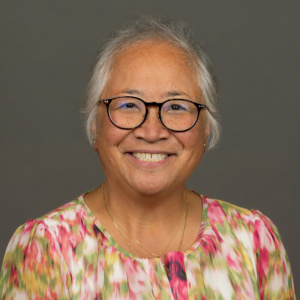
What are the top issues facing nursing today?
With the current political climate, nurses' union strength is being tested while solidarity grows. We’re seeing increasing unionization and strikes. Inadequate staffing, demanding workloads and schedules as well as low wages have left many nurses and other healthcare workers feeling undervalued and overworked. This has led to heightened activism against corporate healthcare, which is often seen as prioritizing profits over patient care and staff well-being.
What are your top priorities for the board this term?
My main top priority for the board for my term is representing the over 21,000 bargaining unit nurses and their facilities to the board in their best interest and effectively conveying the labor involvement and issues of the nurses.
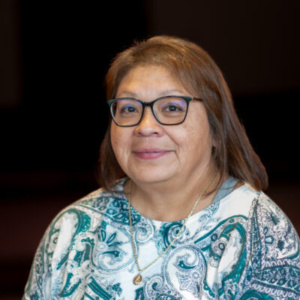
What are the top issues facing nursing today?
A big issue is nurses’ safety from violence and focusing more on preventive measures like metal detectors. Secondly, we need to ensure our nurses get their uninterrupted rest breaks and lunches without using the “buddy system” and a stronger focus on staffing matrices.
What are your top priorities for the board this term?
The 2022 WSNA Membership Assembly passed a resolution calling for staffing ratios. More than 40 years of nursing research identifies and continues to confirm that acute med/surg care staffing should be 1:4 patients for ideal patient outcomes. Many specialty nursing organizations have established staffing ratios and directives.
The Joint Commission recognizes hospital staffing as a national priority goal while leaving the hospital administration in control of defining what the goal is with no input or consultation with the staff nurses actually doing the work.
ANA has publicly stated that ratios are one way to affirm quality patient care is being given, has identified multiple acute care areas that do and would benefit from established ratios, and has encouraged and sponsored federal legislation to establish nursing ratios. I would like to adopt national acute, specialty care and home care staffing standards that are based on evidence and expert opinion or a committee’s recommendation with further research to be done.

What are the top issues facing nursing today?
The first Issue that comes to mind is safe staffing due to its significant impact. Working conditions related to staffing are the No. 1 driver of nurses leaving the bedside or making nursing a side job. People still want to work in nursing, but due to the current environment, they choose not to do so on a full-time basis. We need to address this issue and come to terms with the fact that we will be in a worse place if we don't listen to our nurses.
Secondly, we need a drastic change to improve our broken healthcare system; we need to think of a better way forward that prioritizes patients over profits. Hospitals claim they are losing money, blaming poor insurance rates and the benefits they must provide to those without healthcare. We need to think big about healthcare reform that simplifies the system to make healthcare accessible and that provides safe staffing for that care. I know that when nurses put our minds together, we can fix anything in front of us!
What are your top priorities for the board this term?
David Keepnews, our executive director, is retiring, and this is top of mind for me. He has led us to expand and meet the moment for the needs of our members and for the profession itself. Ensuring that the next executive director shares the same passion, insight, and care for the nursing profession is my top priority in the near term.
The second priority is delivering for our members and being visible. We need to continue leading and ensuring that we provide for our members, which we have been doing. However, we must also be mindful of not taking anything for granted. Keeping the member front and center is essential for a strong WSNA that can deliver effective change, benefiting our members for the better.

What are the top issues facing nursing today?
The biggest problem nurses face today is the exploitation of our compassion. It is our nature to give of ourselves constantly and do whatever is necessary to give the best care possible to our patients. We give and give and trust that we are on a team of others who have the same goal.
As healthcare becomes more privatized and profits become the priority, corporations take advantage of our giving and continue taking away resources and adding to our pile because they know we will bend over backwards to care for our patients. Hospitals profit from our care and compassion, which leaves nurses depleted.
What are your top priorities for the board this term?
My priority on the board is to care for nurses so that nurses can better care for our community. Listening, advocating for, and prioritizing resources to care for nurses is essential. When nurses are given more resources, everyone benefits. Providing nurses the proper care and resources is done through education, legislation, and organized activity.
I also hope to show other young nurses that WSNA is a welcoming place for their voices. I was nervous to speak up as a young nurse and didn’t believe I had a place within WSNA. Now that I’m serving my second term on the board, I can honestly say that WSNA has welcomed me with open arms and has helped encourage and elevate my voice at both the state and federal level.
It is also important to build our strength so that we can push back against the anti-union forces in this country. I will do everything I can at the hospital, state, and federal level to preserve and grow union power. They can’t break us!
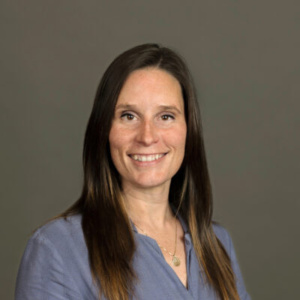
These responses are taken from Kelli Johnson’s candidate statement.
What are the top issues facing nursing today?
The top issues facing nursing today are first and foremost the corporatization and profit-driven focus in every sector of healthcare and the degradation of the quality of healthcare. Second to that is the lack of policy from both state and federal governments to address the impacts of the aforementioned and the disproportionate burden that is being placed on nurses and their respective unions to tackle it at the bedside and in contract negotiations.
What are your top priorities for the board this term?
Work towards strengthening the power and influence of nurses in Washington state so that nurses have the ability to effect change through policy at the state and federal level. For so long, our voices have been secondary to that of hospitals and health insurance companies. Nurses experienced that first-hand with the Hospital Staffing Committee Law to our and our patients detriment especially with the current and impending cuts to Medicaid.

What are the top issues facing nursing today?
Violence against healthcare workers is a huge problem. Hospitals are not doing enough to protect their workers in a world that is becoming more violent. Systems need to be in place to help protect workers.
The other big issue is the corporatization of healthcare and hospitals focusing on making money rather than taking care of their workers to support excellent care. Top executives are getting huge bonuses while workers are suffering.
What are your top priorities for the board this term?
I love WSNA — it has been very impactful in my work life, and I want to make sure nurses know that WSNA has their backs. I’m excited about my role as chair of the Legislative and Health Care Policy Council. My priorities are to build relationships with legislators, build relationships with nurses, and encourage nurses to run for office.
It’s a tough time legislatively because of the federal cuts and the huge state budget shortfall that has to be addressed in the upcoming legislative session, but my priority is to do everything we can as an organization to continue to advocate for nurses to the greatest extent possible.
It is important to continue to build relationships with legislators so that we’re in a stronger position to push important bills in the future, and it would be amazing to have a nurse in the Washington State Legislature again.
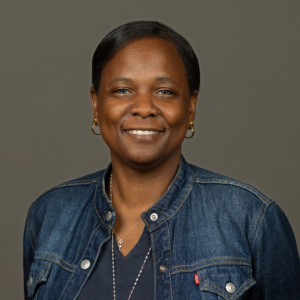
What are the top issues facing nursing today?
There are many issues facing nursing today. As I read more and more historical documents that account firsthand nursing stories, these issues seem to be similar. Staffing shortages continues to be a challenge in many sectors of nursing for various reasons.
What are your top priorities for the board this term?
I hope to give voice to those who may not feel they have one. As a Black American, I am also very aware of the role I play in the ERSJ (Equity and Racial and Social Justice) work of the organization and hope to continue this important work. To close, I hope to encourage more nurses of color to join and participate at all levels of WSNA.

What are the top issues facing nursing today?
At this moment more than ever, politics are influencing people’s beliefs about health and healthcare access. Nurses need to be prepared to educate and advocate in ways that bridge ideological divides to protect the health of our communities. We need to stay tuned in and closely connected to trustworthy sources of information, so we are able to keep pace with rapid changes.
What are your top priorities for the board this term?
In addition to making sure we select the right leader for our next executive director, I want to see WSNA continue to leverage the strength in numbers and the trust nurses have with our communities to be a steadfast and clear voice that champions what is best for nurses and patients.
For more on the candidates, see the bios they submitted for WSNA elections.

